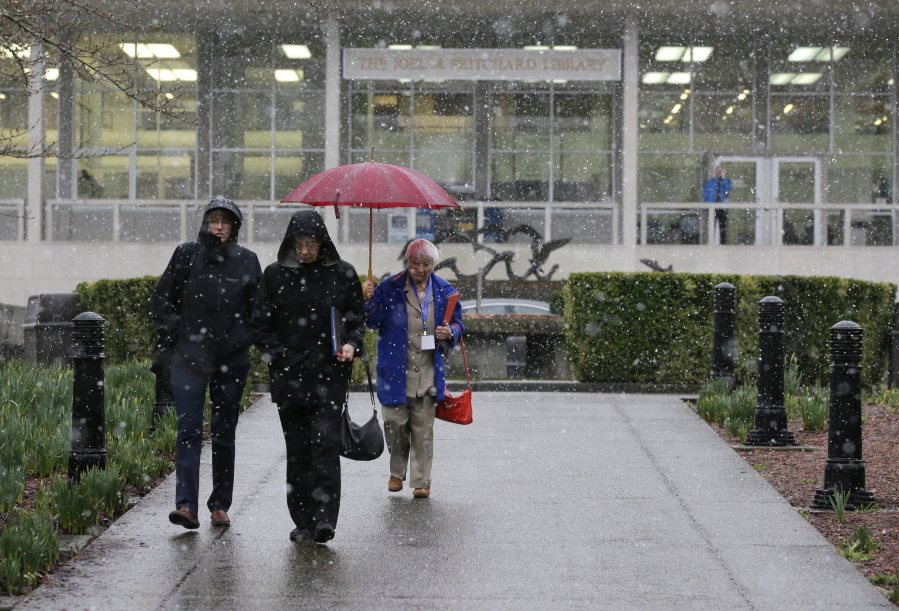SPOKANE — A very wet February has dramatically improved the water supply forecast for Washington state, the Natural Resources Conservation Service said Monday.
Heavy precipitation and cool temperatures last month rebuilt the state’s eroded mountain snowpack, which is now 108 percent of normal statewide, the federal agency said.
Water shortages are extremely unlikely this summer because the winter snowpack is in perfect condition heading into spring, water supply specialist Scott Pattee said. “I’m not seeing any shortages of water anywhere to speak of,” Pattee said during a conference call.
The snowpack made a dramatic improvement over January, which was very cold and very dry.
February precipitation was around 200 percent of normal in many river basins, and many reporting sites set daily precipitation records, the service’s March 1 report found.
Much of the state depends on mountain snowpack that gradually melts for its water supply in hot summer months. That’s especially true in farming regions where the snowpack provides irrigation water.
“If we can maintain the numbers we have, we are going to be in absolutely perfect condition coming into the spring and irrigation season,” Pattee said.
The water wealth is evenly spread, with the mountain snowpack well above 90 percent of normal in all basins of the state, he said.
At the same time, major flooding is not expected.
“I have not heard any concerns of spring flooding,” Pattee said. “Spring flooding from snowmelt is rare in Washington.”
The weather continues to be favorable in the first few days of March, he said, and the forecast calls for cold temperatures and above-normal precipitation, which should continue to build the snowpack.
Conditions were not nearly so rosy in January, which Pattee described as dismal.
Meanwhile, the U.S. Bureau of Reclamation predicted that the irrigation water supply will be about normal in the agriculturally rich Yakima Valley. The valley depends on water from a series of reservoirs in the Cascade Range to produce its diverse bounty of crops each year.
The bureau predicted that holders of senior irrigation water rights will receive 100 percent of their water during the irrigation season, while holders of junior water rights will receive 96 percent of their allotment.
“We are expecting the water supply to be near normal,” said Clark Garner, a supervisor for the bureau’s Yakima Project.



